A German start-up with a colourful identity is growing in the heart of Berlin. The business of consultant agency Comatch is based on an algorithm which proposes suitable consultants for companies seeking for advice. Comatch benefits from its employees’ diverse backgrounds.
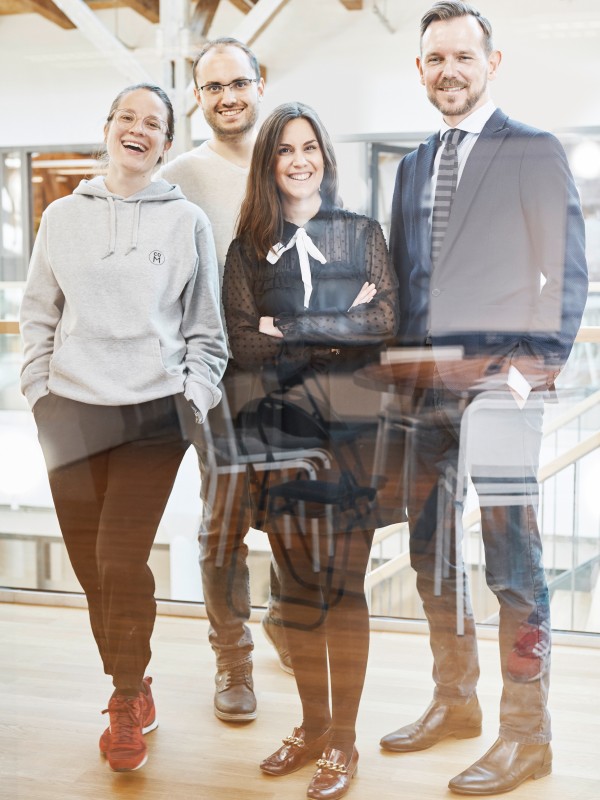
Europe in its DNA
Comatch employees enjoy working in the multicultural company.
Multicultural work at Comatch
At first glance, nothing here seems particularly European. French employees take care of French clients, a Danish staff member looks after the Nordic market and German representatives are the point of contact for German customers. One could essentially assume that this successful start-up is a traditional company that organises its business in Berlin’s Moabit district according to the age-old sales adage: “all business is local”.
Something else makes it remarkable: the staff, now made up of 130 permanent Comatch employees, are from 28 different countries. Each of them speaks several languages, including English – the language of commerce and common speech. Many studied in a country other than their native land or spent time working abroad. “Europe – that is what we are. We simply live and breathe it. And that also includes those who found their way here who don’t even come from Europe,” says Christoph Hardt, 39, one of the company’s two founders.
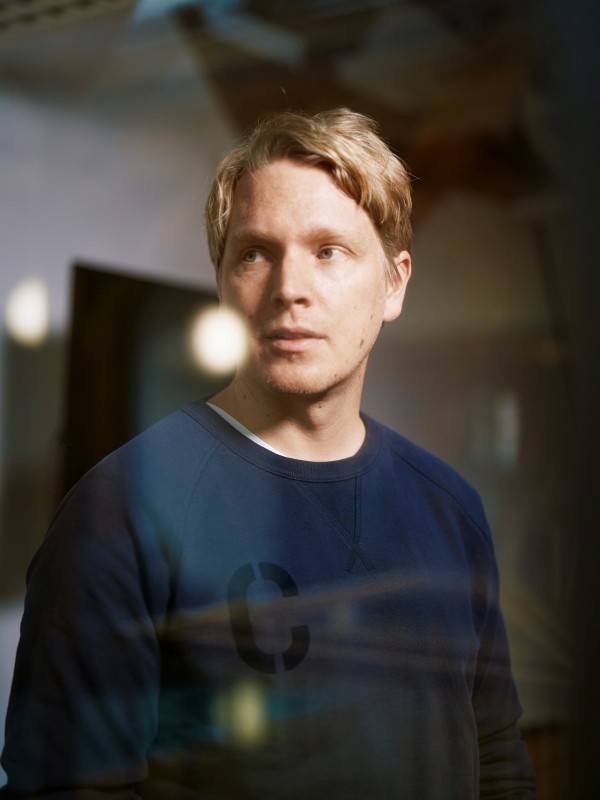
Christoph Hardt ...
... Co-founder and managing director of Comatch.
Hardt previously studied business administration in Bayreuth and Nice. He met his colleague Jan Schächtele five years ago when both were working in the Netherlands on a project for McKinsey. They were staying in a remote hotel when they had the idea for Comatch: why work within the strict, cost-intensive structure of a large consulting company when firms everywhere are looking for less expensive consulting services? And what if there were consultants who would rather decide for themselves when, where and how much they work, instead of being locked in the hamster wheel of a large corporation? Two Germans had the idea, but apparently this idea was not particularly German.
In 2014, they founded Comatch have since established a pool of over 10,000 consultants who they connect with companies throughout all of Europe. About half of them have experience in traditional consulting. The other half are industry experts with at least ten years of experience in process optimisation, developing supply chains, starting online sales with apps, or setting up more targeted searches for suitable employees. The team in Berlin uses an algorithm to find three or four suitable candidates for a company searching for consulting services, then recommends these consultants. The client ultimately decides whether the offer is a good “match”.
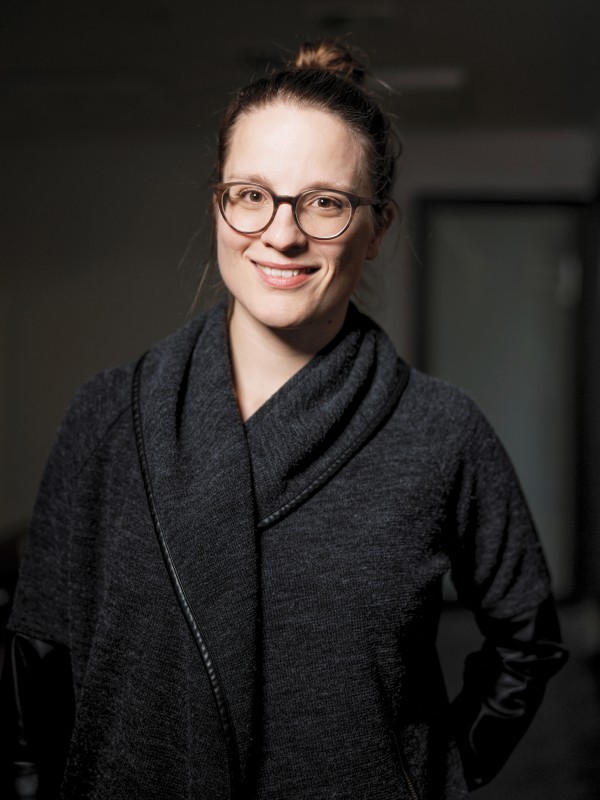
Katharina Schneider ...
... Director Growth & Business Intelligence.
Based in Berlin
The business already counts two-thirds of DAX companies among its clients. At its heart are the people on site in Berlin, who are working to build up the network of clients and consultants. The oldest people here are around 40 years old. Most of them wear T-shirts, sweatshirts or hoodies instead of button-down shirts, perhaps paired with cargo trousers instead of suit trousers. Some of them sport beards worthy of the capital city’s hipster scene. With their laptops on their knees or on benches next to a ping-pong table, Comatch employees seem more like the members of a Silicon Valley start-up than part of a cliché corporate consultancy firm.
Katharina Schneider is from Switzerland. She studied international management in Lausanne and St. Gallen, and worked at Deloitte in Zurich for two years before coming to Comatch. “We have grown so much in the last two years that the challenges have grown with us, or at least changed,” says the 31-year-old. “It has been a long time since we were all able to go out for pizza at lunch to talk about everything. To keep things transparent, it is necessary to work in smaller groups. And the more international we became, the more aware we had to become about how we interact with each other. The straightforward nature of German culture is difficult for some people to bear. On the other hand, some people don’t like it when people beat around the bush instead of using plain language. But becoming aware of these cultural differences has improved the quality of our work and also how we interact with our clients and consultants. I see it as an opportunity.”
“We shouldn’t view Europe as one single large entity.”
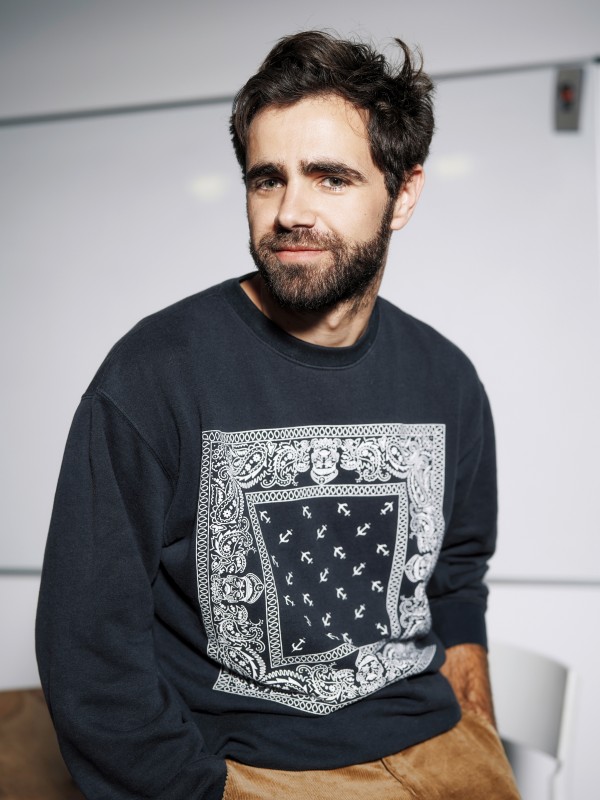
Clément Eymard ...
... a native Frenchman and Director France.
The aim is to make Comatch an international force
The Europe of slight and subtle differences plays a crucial role in the company’s work. “You need to have native speakers or people with comparable language skills to achieve this”, says Toby Nielsen. People like him. The 42-year-old economist from Denmark has been responsible for Northern Europe for four years now. “English is the universal language of our business. It’s practical because everyone speaks it. But when it really counts, that’s often not enough.”
His colleague Clément Eymard, a 35-year-old economist who joined Comatch three years ago and is now heading the Paris branch says: “We shouldn’t view Europe as one single large entity. It’s more like a huge building in which each individual nation has its own apartment. Each one arranges it according to its own ideas. We need to be considerate of that.”
It is easy to feel like you are on the campus of a European business school if you speak with the Comatch staff. The people here seem young, flexible and always ready to communicate with each other in any of the languages available to them. And just as the firm’s success consists of helping companies to find solutions for their problems, the staff is also solution-oriented, coping with the demands of their daily routines. The figures show that this works at Comatch. The Berlin team placed almost 800 consultants in over 1,000 projects last year. Because each project lasts an average of 30 to 40 days, that is equivalent to 40,000 consulting days. Two years ago, it was 271 consultants in 487 projects and 17,960 days. Comatch is clearly not only flourishing – its growth is explosive.
KfW Capital indirectly invests in Comatch
So it is not surprising that one of Europe’s leading growth investors, venture capital company Acton, increased its shares in 2018, investing another four million euros in Comatch. KfW Capital has also indirectly invested in Comatch through one of the funds that Acton set up. “KfW Capital invests in venture capital funds like Acton’s to have a stake in companies like Comatch that are innovative, digital and on a growth trajectory,” explains Dr Jörg Goschin, member of KfW Capital’s Management Board, “because they will play a large part in contributing to future competitiveness.” And Sebastian Wossagk, the managing partner at Acton in Munich responsible for Comatch, adds: “We found the idea and both of the company’s founders convincing from the start. We strive for the same things as KfW Capital. We are generally interested in business models that are both fast-growing and sustainable. As opposed to many American investors, Acton does not speculate with the attitude that only one or two companies in a portfolio of 20 start-ups will excel enough to earn money for the entire fund. We rely less on the return on only one individual investment. Instead, we bank on the success of the greatest possible number of ideas in which we invest. This lessens our dependence on individual results. The success of our fund during the last few years tells us that this strategy is right.”
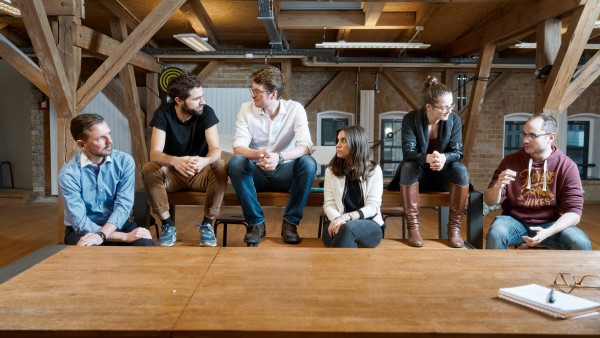
United diversity
People from 28 nations work for Comatch.
Comatch is capturing larger shares of the market
Comatch has since started using the external funds to further expand its business internationally, beyond Europe. But the start-up from Berlin is also capturing increasingly larger shares of the market in France, northern Europe, the Benelux countries, the United Kingdom and the USA.
Marie-Cécile Chauveau is one of the consultants working with Comatch. The 41-year-old Parisienne lives with her French husband and children in Hofheim, near Frankfurt, Germany. One aspect of her work as an industrial engineer is to support companies from her home country as they take root in the German market. “The fact that I used to work in France has really helped me, of course. That experience helps me act as a liaison between German desires and ideas for a project, and the more hierarchical corporate culture in France, which is centred more on respect for knowledge and the experience an older employee or supervisor has. At the same time, as a freelance consultant, I also bear more responsibility and have more freedom than if I were to be locked into the fixed structure of a company. My first year with Comatch was successful, both personally and financially.”
Since Comatch began focusing on markets beyond Germany, the company has become more colourful and diverse. “The German company has grown into a European company with German roots,” says Toby Nielsen.. “We see ourselves as bridge-builders between clients and consultants. That also applies to us among ourselves.”
So the unrest in Europe – whether about Brexit or the success of Eurosceptic parties – may personally cause some people here concern, but it does not upset anyone. Because no-one doubts Comatch’s business model. “If Europe and its economy truly experience a crisis, the demand for consulting will rise,” says Nielsen.
Whatever may happen in the coming months to weld Europe together or pull it apart, it is a successful project for Comatch.
Published on KfW Stories: 13 May 2019, last updated: 7 April 2020.
The described project contributes to the following United Nationsʼ Sustainable Development Goals
Goal 8: Promote inclusive and sustainable economic growth, employment and decent work for all
The economic growth of the past decades has come at the expense of natural resources and the global climate, and has long since reached ecological limits. If all people were to be given access to the quality of life that people accept as a matter of course in Germany, several planet Earths would be required to sustain it. Sustainable economic development reconciles social, ecological and economic development goals.

All United Nations member states adopted the 2030 Agenda in 2015. At its heart is a list of 17 goals for sustainable development, known as the Sustainable Development Goals (SDGs). Our world should become a place where people are able to live in peace with each other in ways that are ecologically compatible, socially just, and economically effective.

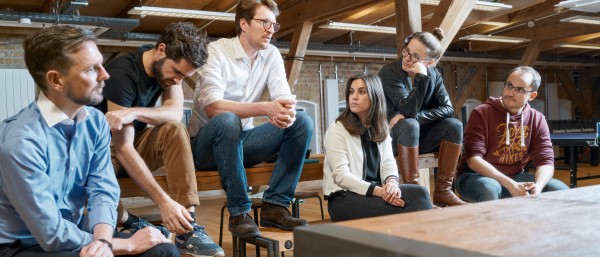
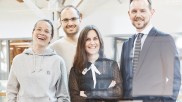
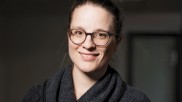
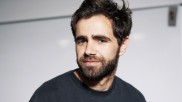
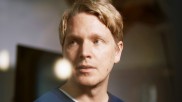
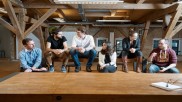
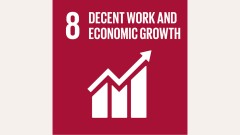
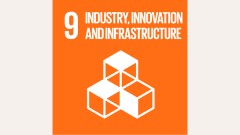

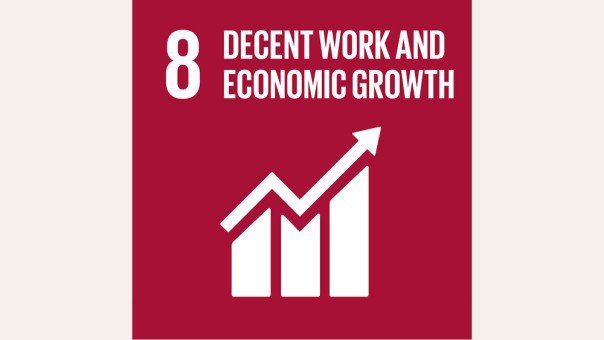
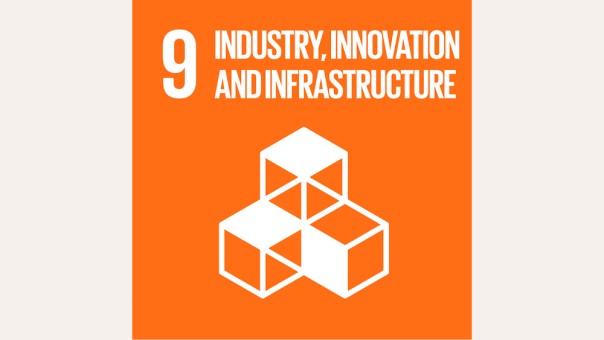

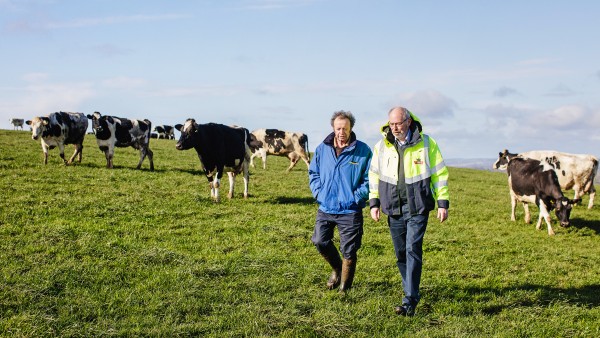

Data protection principles
If you click on one of the following icons, your data will be sent to the corresponding social network.
Privacy information